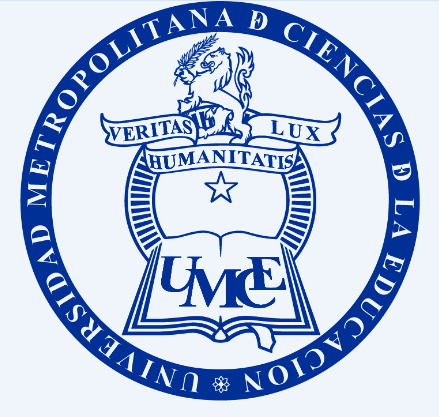Main Article Content
Jun 1, 2023
Abstract
Preschool education is the first level of education in our country, which aims to “promote a quality education and leaming relevant and permanent in children during their first years of life” to promote and achieve this goal today have been a number of educational proposals, which is the primary role played by the educator/ ra nursery.
In our country, through the Foundations Curriculum for Preschool Education, provides a definition of the role played by the nursery teacher in their different functions, making it the main reference point for students and educators in service. It also recognizes the educational transition, as they provide múltiple axes energizing potential as lead groups of children who usually do not resort to them, considering them important because they are organized and there are important educational relations.
Considering the new challenges and as an opportunity to provide top quality nursery education, the Metropolitan University of Educational Sciences at its headquarters in Santiago and Granary has implemented four years ago from Final Practice in new scenarios such as libraries, museums, and recently safari park in the sixth región, emerging as a complement and support the learning process of children from various schools, claiming also that these institutions come to be formally in a new educational setting that complements the educational process traditional, where children can learn about the libraries from another perspective, interacting and enjoying children's literature as a first approach to reading and writing, as well as in the case of a museum, the cultural heritage their communities, cities or towns and the living beings represented in flora and fauna that live together in the parks.
The following work experience and allows systematizes characterize and contextualize the roles played by a kindergarten teacher to intégrate these institutions and be part of a new team, where his contribution in the field of education has helped enrich the learning of children and youth.
References
Los procesos iniciales de lecto-escritura en el nivel inicial, volumen 2, número 1, año 2002.
Peralta, María Victoria “Una pedagogía de las oportunidades, Nuevas ventanas para los párvulos latinoamericanos del siglo XXI”, Andrés Bello, Chile, 2002.
Hernández, R.; Fernández, C.; Baptista, P., “Metodología de la investigación”, McGraw Hill, México, 1995.
Ruiz, José; “Metodología de la investigación cualitativa”, Universidad Deusto, España, 1996.
Fornasari de Menegazzo, L y otros El Jardín de Infantes de Hoy. Editorial Librería del Colegio. Buenos Aires 1995.
Inostroza de Celis, G (1996) Talleres Pedagógicos alternativas en formación docente para y el cambio de la práctica de aula. Editorial Dolmen, Santiago
Imbernon, F (1998) La formación y el desarrollo profesional del profesorado. Hacia una nueva cultura. Editorial Grao. Barcelona España
Documentos
Informe final práctica profesional Museo Regional de Rancagua, Angela Cortés Gallegos y Mitzi Silva Arévalo, año 2006.
Informe final práctica profesional Museo Regional de Rancagua, Valeska Contreras Sepúlveda, Ruth Leiva Valenzuela y Marjorie Sepúlveda Rodríguez, 2007.
Fujimoto Gómez, Gaby, “La educación no formal; Experiencias latinoamericanas de atención a la infancia: la no escolarización como alternativa”, Congreso Mundial de Lecto-escritura, celebrado en Valencia, en diciembre del 2000
Convención de los derechos del niño, 20 noviembre de 1989.
Educación pre-escolar en Israel.
Sitios WEB
http://www.mineduc.cl. mayo-diciembre 2007.
http://www.atinachile.cl. junio 2007.
http://www.maravillosarealidad.com/museo/historia. junio 2007.
http://www.museorancagua.cl. junio-diciembre 2007.
http://www.dibam.cl/bibliotecas publicas, junio-diciembre 2007.




